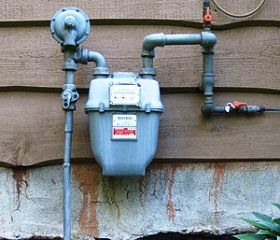As the city works to achieve a climate goal of carbon neutrality by 2050, city council is examining the impact of Charlottesville’s natural gas utility. Susan Kruse, executive director of the nonprofit Community Climate Collaborative, says there’s good reason for concern about compressed natural gas running through aging pipelines.
“Natural gas is largely made up of methane, which has 80 times the warming potential of carbon dioxide,” Kruse explained in an interview on Charlottesville Right Now.
Kruse says the city deserves credit both for recently commissioning a study on decarbonizing the utility, and for regularly checking for leaks along the pipeline, but that doesn’t sufficiently mitigate the risk.
“One of the things that C3 has been paying attention to, leading up to this study and will continue to look at, is how many leaks do we have in our municipal gas system?” she said. “Although the city has replaced some of our lines, it still is self-reporting approximately 200 leaks per year in its gas system.”
In addition to the city’s regular checks, leaks are discovered through resident reports.
“Somebody reports it, either they’ve dug too deep and they’ve created a leak or they’ve just smelled one in their community,” she said.
C3 did its own investigating of the natural gas pipes in the city and discovered one particularly alarming leak.
“We actually found an explosive level leak outside Maya restaurant on West Main Street,” Kruse said.
Kruse says the C3 team alerted the city, and employees responded immediately to fix the leak.
She says another reason for concern is that some of the neighborhoods with the oldest infrastructure are historically communities of color.
“The Rose Hill and the Fifeville neighborhoods have the highest leaks per person of all the neighborhoods in Charlottesville,” she said. “So it’s just something we’re paying attention to.”
The natural gas is used in homes primarily for heat, and Kruse is not advocating for an immediate termination of the natural gas, but she does believe there are steps that can be taken to reduce the risk of leaks both for the environment and for public health and safety.
“I think we have to do it responsibly,” she said. “So I don’t think we’re there yet. I don’t think we have a plan, but we certainly want to see responsible actions being taken that are mitigating some of the worst offenses of the utility while we figure out how can we transition homes away from gas in a way that doesn’t put financial burdens on families and in ways that sure people are protected during electrical power outages.”
Listen to the full interview with Susan Kruse here.



